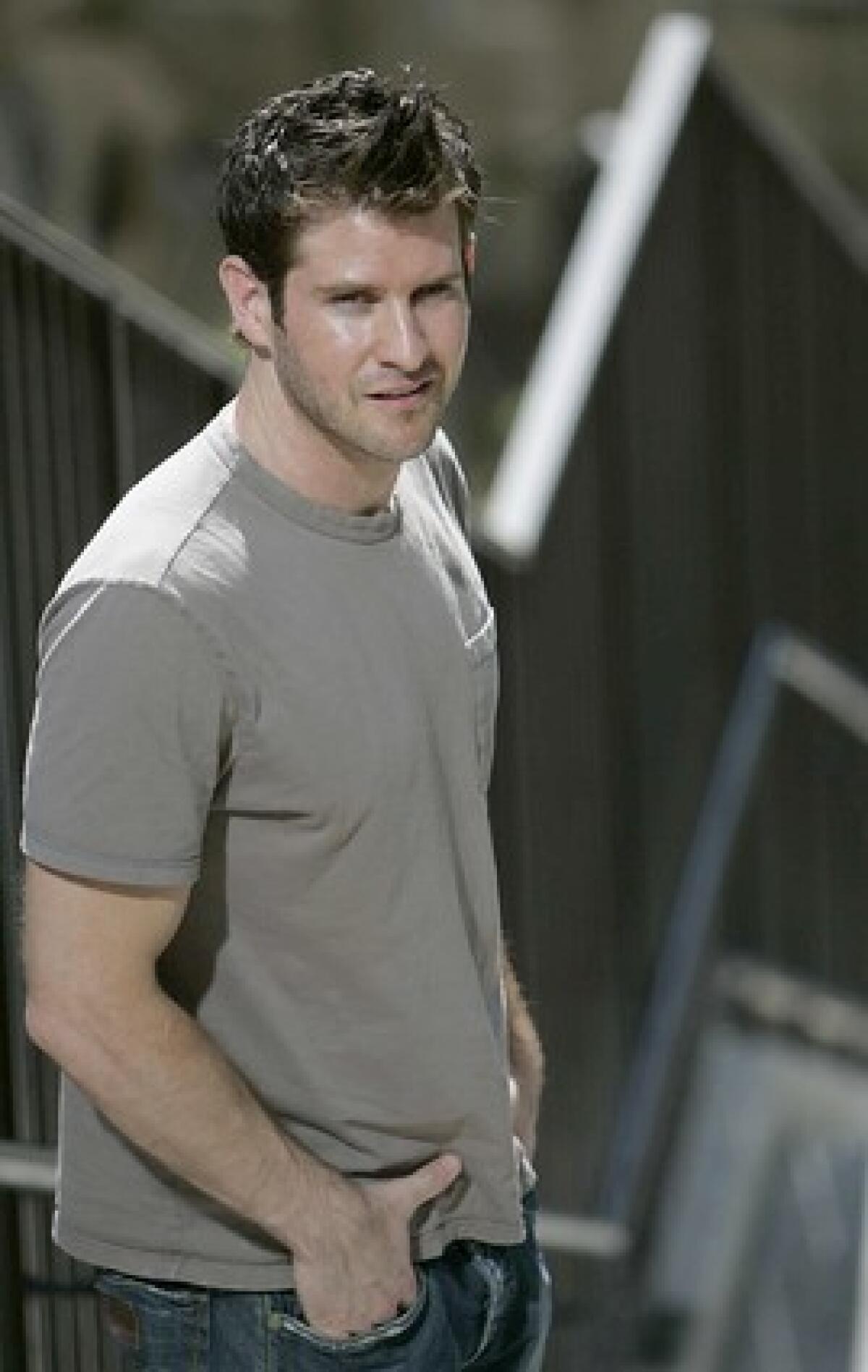Richard Kelly resurrects ‘Southland’

TORONTO -- It was an offer he couldn’t refuse. The Cannes Film Festival invited writer-director Richard Kelly to screen his second feature as part of its prestigious competition section. So Kelly took his “Southland Tales” to France in 2006, even though there was work still to be done on it.
The response? Disastrous. A “career killer,” according to more than one industry watcher. Variety’s review called it “pretentious, overreaching and fatally unfocused.” The Village Voice said it was “a high-voltage farrago of unsynopsizable plots and counterplots” -- and that was one of the kind notices.
“Even with all that happened, I don’t regret it,” Kelly said recently of the experience. “Now that all the dust has settled, the movie is actually better off because of it. Honestly, it is. The hope is we can still somehow recover and the movie can find an audience.”
Kelly will soon find out. He and his team, including producing partner Sean McKittrick, have been hard at work on revising the film nearly nonstop since that awful summer. “Southland Tales,” which will be released Nov. 9, has been trimmed by approximately 20 minutes since Cannes and now has about 600 visual-effects shots, of which at least 100 are completely new.
“One of the biggest knocks on the movie was that it was too long,” Kelly said. “I knew it was too long. But it’s like a really elaborate puzzle. Like Jenga, you pull out enough blocks and it’s still structurally sound; you pull out too many and it starts to collapse.”
The now 2-hour, 24-minute story is purposefully byzantine for even the most attentive of viewers. Characters have multiple names and identities, plot strands ebb, flow and intersect. Add to that Kelly’s casting choices -- drawing together such pop figureheads as Dwayne “the Rock” Johnson, Sarah Michelle Gellar, Justin Timberlake and Mandy Moore into a kaleidoscopic swirl -- and the experience of simply taking it all in, and it’s pretty overwhelming.
The film is broken into three chapters, IV, V and VI. The first three chapters came out as graphic novels after Cannes, and Kelly admits they were the key, even for himself, for getting a handle on what was happening to the characters on screen.
“I couldn’t get to a place, emotionally, as an artist, where I really felt I could finish this movie properly until I had the books done,” he said. “I was a nervous wreck and I was depressed. I tried to do too much, and I failed. I felt I wasn’t going to fulfill this movie, how great I had it in my mind. But once I finished the books, a big monkey was lifted off my back. I could really figure out how to solve the puzzle of the film. When we went to Cannes I hadn’t finished with the books yet.”
To that end, Kelly seriously revamped the first reel of the movie to include background information from the graphic novels and give the audience more of a running start on the film’s densely packed narrative. Following the same opening scene, a Texas house party on July 4, 2005, that ends with mushroom clouds in the distance, the film now shifts into a dizzying animated sequence, referred to as the Doomsday Scenario Interface, which draws imagery from the graphic novels. Torrents of information are quickly revealed regarding the three years that follow, in which multiple wars are waged, an intense culture of government surveillance is created, alternative fuel sources are explored and Hillary Rodham Clinton runs for president on a ticket with Joe Lieberman. The world seems truly off its axis.
Kelly also re-recorded Timberlake’s voice-over narration that runs throughout the film. Where the voice-over on the Cannes cut was more biting and sardonic, Kelly instructed Timberlake to watch “Apocalypse Now,” so the voice-over now has the flat, hollowed-out lack of affect of Martin Sheen.
In trying to downplay their concerns over what might be called “the Cannes effect,” McKittrick and Kelly are quick to point out that Kelly’s first feature, “Donnie Darko,” premiered at the Sundance Film Festival to similarly mixed results. After that film’s initially disappointing theatrical release in fall of 2001, it went on to build an international cult following. Kelly and McKittrick are in no small part depending on that fan base, which Kelly has nurtured in the interim with regular MySpace posts, to turn out for “Southland Tales,” regardless of what may have happened at Cannes.
“At the heart of it, our audience doesn’t care,” McKittrick said. “They panned us just as hard on ‘Darko,’ and our core audience knows that. And I think the general public isn’t going to pay attention too much to Cannes reviews; that’s more of an industry thing. I think it can actually fuel a fire, to be honest with you. It can get people excited to see it and make seeing it more rebellious in a way.”
“The movie was made primarily for a younger audience,” Kelly added, “people who watch ‘South Park,’ read the Onion, watch ‘The Daily Show,’ ‘The Simpsons,’ read graphic novels. And we were taking it to the toughest audience in the world, much older and kind of snobbier. But it was an honor to be there, to be included, so with the honor you take the punches to the face.”
The rebooting of “Southland Tales” has given Kelly a clear-eyed perspective on what happened at Cannes and on himself as a filmmaker. The elongated journey to theaters now seems oddly appropriate for a film of such consciously unwieldy ambition and scope.
Finishing a recent late breakfast, Kelly stares at a half-eaten plate of food and absent-mindedly notes, “I always order more than I can eat.” Immediately realizing the tantalizingly obvious metaphor, he hastens to add, “But I will finish it if you just give me time. I swear.”
More to Read
Only good movies
Get the Indie Focus newsletter, Mark Olsen's weekly guide to the world of cinema.
You may occasionally receive promotional content from the Los Angeles Times.







